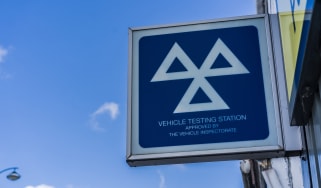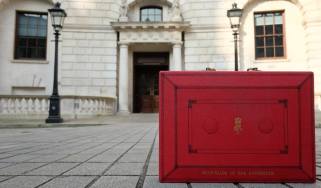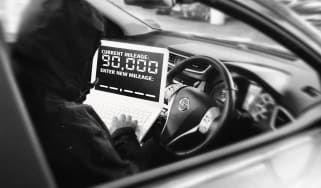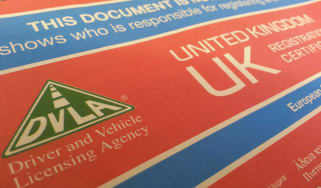How to find the cheapest petrol and diesel near you
Cheap fuel is hard to come by in the UK at the moment but there are ways that you can minimise what you pay for petrol and diesel
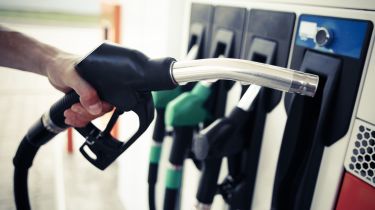
Petrol and diesel prices are a hot topic at the moment. Motorists with internal combustion engined cars are feeling the squeeze of high prices and with big national and global issues behind the increasing costs, it feels like there’s very little anyone can do about it.
To an extent, that’s true. Taxation and problems in the post-pandemic fuel supply chain are out of the direct control of ordinary motorists but there are steps we can take to try and find the cheapest fuel we can – and get as many miles as possible from each tank.
How to find cheap fuel
The hunt for cheap fuel is not an exact science but with a little bit of extra effort you can save a few precious pennies per litre. Fuel prices fluctuate on a daily basis and they vary from fuel station to fuel station and from area to area. For that reason, it’s worth keeping an eye on the prices at the petrol stations you pass regularly to see where the prices are lowest.
If you avoid refilling at motorway service stations and keep a check on the prices at local supermarkets, you give yourself a fighting chance of saving some cash.
Is motorway fuel more expensive?
The highest fuel prices in the UK tend to be found at motorway services. It’s more convenient for drivers travelling along the motorway network to pull in and refuel, so operators of these facilities have a captive audience to an extent.
Leaving the motorway at an unfamiliar junction and driving around in the hope of finding a local fuel station with lower prices might not seem like a very appealing option, but if you make use of your satellite navigation system and search for local fuel pumps, you should be able to pay lower prices than at the motorway services without wasting too much fuel in the process.
If you’re planning a long Motorway journey you should also think about filling up close to home beforehand and drive in as fuel-efficient a manner as possible to get the most mileage out of your tank. Keep your speed in check, change to a high gear early and observe the road ahead carefully to preserve your car’s momentum and avoid using the brakes.
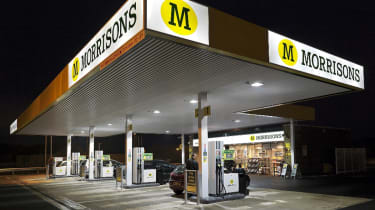
Is supermarket fuel cheaper?
Supermarket fuel being generally cheaper is common knowledge among savvy motorists; just as expensive Motorway fill-ups are. Your local supermarket will probably be selling petrol and diesel at lower prices than you’ll find at dedicated local fuel stations operated by the big oil companies. That’s chiefly because the big supermarkets use cheaper fuel as a lure to attract motorists to their stores in the hope that they’ll spend on other things.
Supermarket fuel is not exactly the same product as you’ll get from other filling stations but all fuel sold in the UK must conform to the same standards. The main difference between fuel bought from different sources is the blend of additives mixed in. These tend to be detergents to help clean the engine and lubricants to reduce wear. The big fuel brands will tell you that their particular mix of additives is what adds the extra value to their products but even supermarket fuel contains some of these.
How to find cheap fuel in your area
Fuel prices also vary from region to region. Fuel in Scotland and Northern Ireland tends to be a little bit cheaper than it is in London and the South East, but it’s certainly not cheap enough to justify driving there to get it!
On a more local level, you might find that you pay more in built-up areas with a steady stream of customers than you do at rural or suburban fuel stations, there are no hard and fast rules on this but there are services that will give you real-time fuel prices in your area so you can head to the cheapest supplier.
Petrolprices.com has an app that does exactly this and is well worth installing on your phone if you want to find the cheapest fuel possible. Other sites will give you the average prices of fuel in your area but don’t supply the location of the cheapest filling stations.
Fuel cards and special offers
Once at the pump, use fuel loyalty and cashback cards to get the most from each fill-up. Most supermarkets have loyalty schemes that can transfer the benefits from your daily shopping to their petrol pumps. For example, a Nectar card – valid at Sainsbury’s, BP, and Esso garages – will give you a point per litre. It doesn’t sound much, but for high-mileage drivers, those savings soon add up.
Business owners can also request a fuel card, such as Allstar, that works in a similar way to a credit card. These cards work across the country and offer substantial savings by charging a flat rate rather than the fluctuating prices at the pump. Unfortunately, fuel cards are reserved for business use, so individual drivers are forced to pay the advertised fuel price.
Can you change fuel to save money?
If high fuel prices are really starting to bite you in the bank account you might be thinking of changing the fuel you put in your car. If you usually buy ‘premium’ or ‘super’ fuel for your car, you can save money by switching to normal fuel. This might be a false economy, however.
We would always advise any motorists to use the grade of fuel recommended by their car’s manufacturer. Many performance cars are designed to run on premium fuel and switching to a lower grade could cause problems down the line, as well as giving a short term drop in performance.
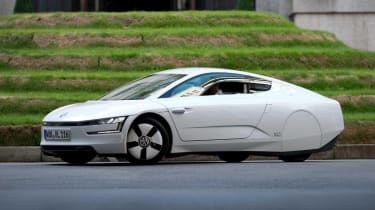
Can you change car to save money on fuel?
Beyond that, a switch of fuel will probably mean a change of car. Electric cars are cheaper to run than petrol and diesel alternatives but they are more expensive to buy. Electric cars are not immune to inflation either and the rising cost of electricity is making them more expensive to charge than they once were. It’s important to do the sums before making the switch.
High mileage drivers spend more on fuel so have more potential to save, but running an EV over higher annual mileages can be more of a challenge if it forces you to rely on the public charging network – where charging costs are even higher and chargers can be unavailable or unreliable. For low mileage drivers, the switch to an EV might not make sense on purely financial grounds because it will take so long to recoup the extra upfront expense in fuel savings.
Changing to a more efficient internal combustion engine (ICE) car is another option. Diesel models tend to be more efficient than equivalent petrol ones but the price of diesel has gone the same way as petrol in recent years. Changing to a smaller car or a newer one that can deliver better fuel economy is certainly a viable option for controlling your fuel costs. Today’s most economical cars can bring big fuel savings.
The cheapest fuel prices from around the world
If you’re really fed up with spiralling petrol prices you could always head for Venezuela. With a litre of petrol costing 1.8p there, you could fill up your family car’s 55-litre tank for under a pound. It’s not going to be an option or any consolation for many people in the UK but there are places in the world where fuel is still cheaper than water!
To make cash-strapped UK motorists feel slightly better, a 55-litre fill up in Hong Kong will set you back £136, with each litre costing an eye-watering 247.1p. It is the most expensive petrol in the world according to new research from June 2022.
Cost of a tankful (55 litres) around the world
Top 5 countries with the cheapest petrol
- Venezuela: £0.99
- Libya: £1.43
- Iran: £2.42
- Syria: £13
- Algeria: £14
Top 5 countries with the most expensive petrol
- Hong Kong: £136
- Norway: £122
- Denmark: £120
- Finland: £120
- Iceland: £118
The UK actually ranks 13th in this global audit of pump prices, with petrol 54% more expensive than the worldwide average (obtained by checking prices in 168 countries).
At the time of writing, a UK 55-litre tankful will set you back £100. Of countries in Europe, you would have to fill up in Iceland, the Netherlands, Greece, Finland, Denmark or Norway to pay more. A Norwegian tank costs £122.
What else can I do to spend less on fuel?
In the final reckoning, UK motorists are exposed to rising fuel prices and there’s no magic catch-all solution to escape the cost of petrol or diesel.
If you need a car and don’t have the cash or the usage patterns to make an electric car viable, you can take a range of small measures to mitigate the problem. Drive more efficiently, research fuel prices locally to try and identify lower prices, use your car less or consider switching to a more economical car; a combination of these should help minimise your outlay at the pumps.
What are your top tips for spending less on fuel? Let us know in the comments...
Find a car with the experts





